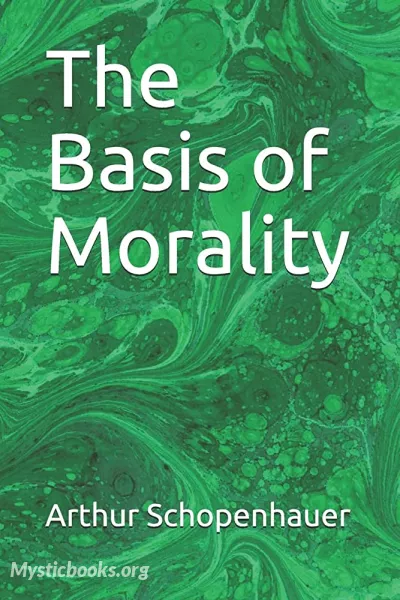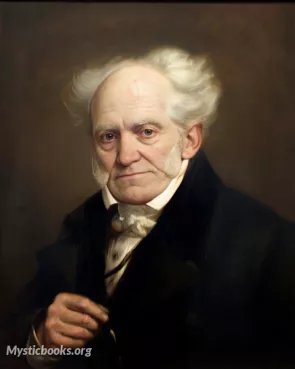
The Basis Of Morality
'The Basis Of Morality' Summary
"The Basis of Morality" is a philosophical treatise written by the renowned German philosopher, Arthur Schopenhauer. Published in 1840, the book is regarded as one of Schopenhauer's most influential works and a cornerstone of moral philosophy.
In the book, Schopenhauer begins by examining the nature of human desire and how it influences our behavior. He argues that human beings are essentially driven by a constant striving to fulfill their desires, which can never be fully satisfied. According to Schopenhauer, this insatiable desire creates an illusion of freedom and individuality that ultimately leads to suffering.
Schopenhauer proposes that the key to finding true fulfillment and happiness is to recognize the interconnectedness of all beings. He argues that compassion is the foundation of all moral behavior and the ultimate source of ethical principles. According to Schopenhauer, all living beings, including humans and animals, share a common essence that binds us together. This recognition of our shared nature leads to a sense of unity and empathy that forms the basis of moral behavior.
Throughout the book, Schopenhauer draws on a wide range of philosophical and religious traditions to support his arguments. He references Buddhist and Hindu thought, as well as the works of Immanuel Kant and Jean-Jacques Rousseau, among others. Schopenhauer also addresses a range of contemporary moral issues, such as the treatment of animals and the ethics of war.
In his discussion of animal rights, Schopenhauer argues that all living beings possess a fundamental will to live and should be treated with compassion and respect. He is particularly critical of the cruel and exploitative treatment of animals for human consumption and entertainment.
Schopenhauer also critiques the concept of the state and the idea of individual rights. He argues that the state is ultimately a coercive force that undermines individual freedom and morality. He proposes that the ideal society is one based on a voluntary association of individuals who recognize their shared nature and work together for the common good.
Overall, "The Basis of Morality" is a thought-provoking and influential work that continues to inspire and challenge contemporary moral philosophy. Schopenhauer's ideas on compassion, animal rights, and the nature of the state remain relevant today, and his work has influenced a wide range of philosophical and cultural movements. This book is a must-read for anyone interested in moral philosophy, ethics, or social and political theory.
Book Details
Language
EnglishOriginal Language
EnglishPublished In
1840Genre/Category
Tags/Keywords
Authors

Arthur Schopenhauer
Germany
Arthur Schopenhauer was a German philosopher born on February 22, 1788, in Danzig (present-day Gdańsk, Poland). He is best known for his work "The World as Will and Representation", which was publishe...
Books by Arthur SchopenhauerDownload eBooks
Listen/Download Audiobook
- Select Speed
Related books

Logic of Vegetarianism by Henry Salt
Henry Salt's *Logic of Vegetarianism* presents a compelling case for vegetarianism, using clear logic and engaging dialogues. Salt examines the ethica...

The Philosophy of Immanuel Kant by Alexander Dunlop Lindsay
This brief commentary on Kant's philosophy is a work that focuses solely on some of the main ideas Kant put forth in the three Critiques. Although not...

Coming People by Charles F. Dole
In "Coming People," Charles F. Dole argues that the "survival of the fittest" is not the only driving force of evolution. He believes that kindness, g...

Convivio by Dante Alighieri
The *Convivio* (The Banquet) is an unfinished work by Dante Alighieri, written around 1304-1307. It's a collection of four treatises, each featuring a...

Precipice by Ivan Goncharov
The Precipice is a story of romantic rivalry and the societal pressures faced by a gifted young man in 19th-century Russia. The novel explores themes...

Leviathan (Books I and II) by Thomas Hobbes
Leviathan, or The Matter, Forme and Power of a Common Wealth Ecclesiasticall and Civil, commonly called Leviathan, is a book written in 1651 by Thomas...

Sayings of Confucius by Confucius 孔子
Promoting virtues such as filial devotion, compassion, loyalty, and propriety, these dialogues between the ancient Chinese philosopher Confucius and h...

Fables de La Fontaine, livre 11 by Jean de La Fontaine
Ce onzième livre des fables de Jean de La Fontaine est celui qui contient le plus petit nombre de fables: 10. Toutefois, les textes de ces fables sont...

Bible (ASV) NT 10: Ephesians by American Standard Version
Described by William Barclay as the "Queen of the Epistles," the Epistle to the Ephesians is one of the books of the Bible in the New Testament. Paul...
Reviews for The Basis Of Morality
No reviews posted or approved, yet...
